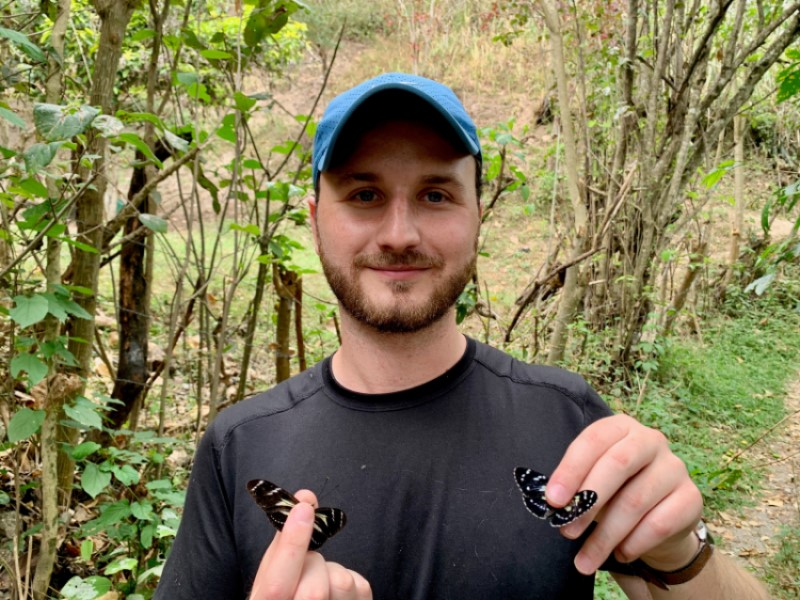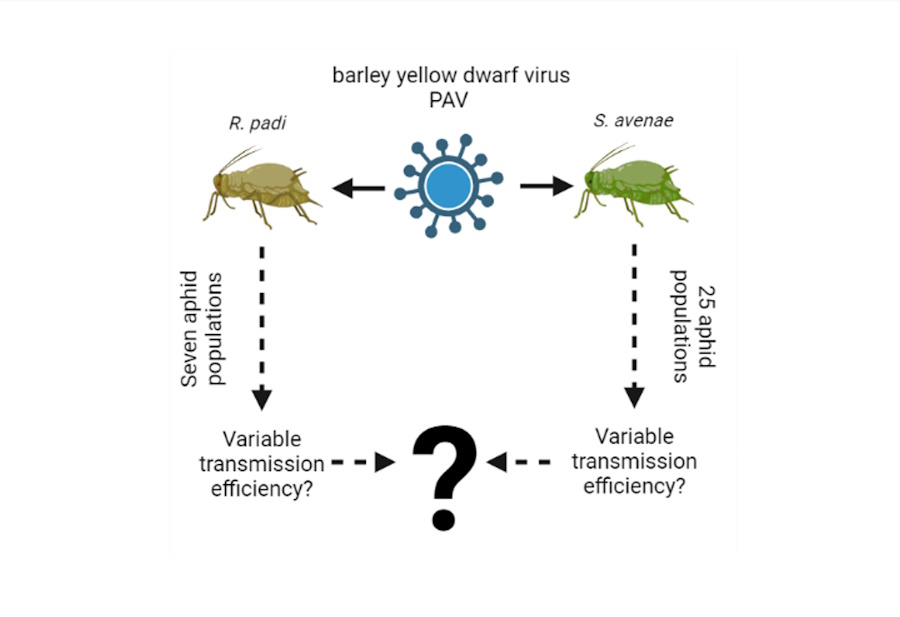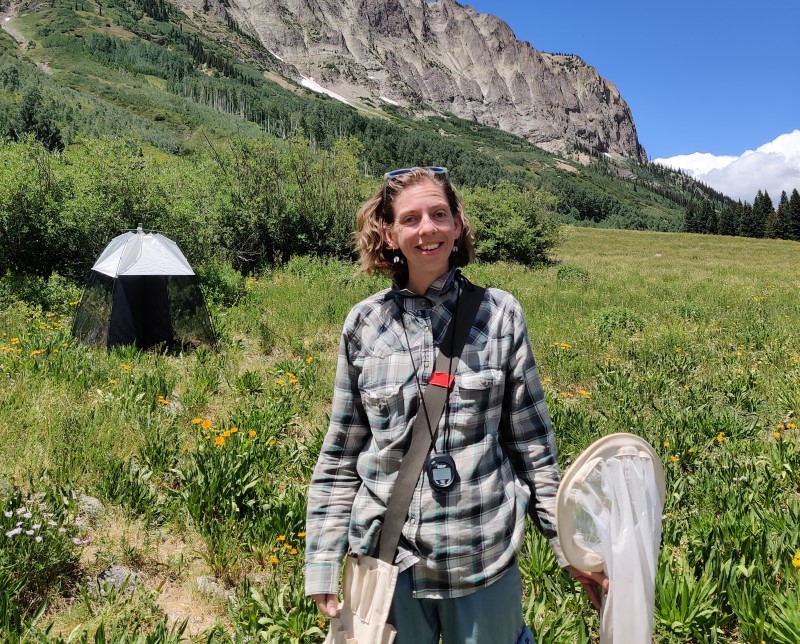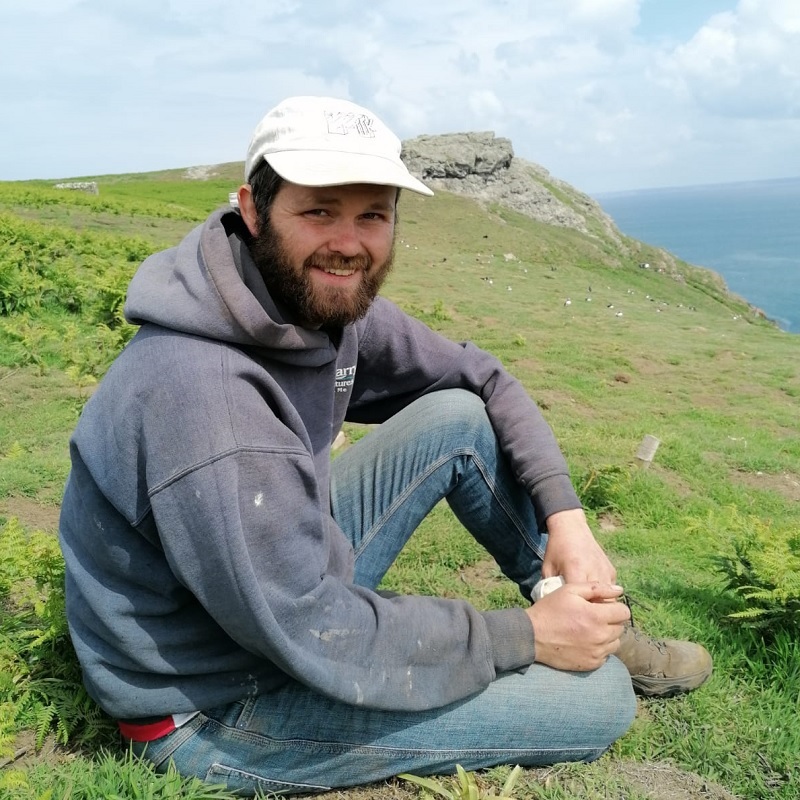We speak to the overall winner of the 2024 Biology Letters Early Career Researcher Competition, Jose Borrero, for the research article Weighting of sensory cues reflect changing patterns of visual investment during ecological divergence in Heliconius butterflies.

Tell us about yourself and your research article
I am a third-year PhD student from Ecuador, currently at the University of Munich. My research focuses on the evolution of sensory system adaptations in Heliconius butterflies.
In our study, we played a little game with two butterfly species, Heliconius cydno and Heliconius melpomene. We trained them to associate specific colors and smells with rewards to see which senses—vision or smell—were more important to them.
It turns out, H. cydno, which lives in dense forests, relies more on vision, while H. melpomene, found in more open areas, leans on a mix of senses. This difference likely comes from how their brains have evolved to adapt to their environments. Our research shows that these sensory preferences could be an early step in how species adapt and evolve. It’s a bit like butterflies developing their own unique way of seeing and smelling the world!
Did you expect to be a finalist in our inaugural competition? And do you recommend that other early career researchers enter this year’s competition?
I was pleasantly surprised and honored to be a finalist. Being recognized for our work was incredibly rewarding. This paper involved a great deal of effort, particularly in training the (sometimes stubborn) butterflies. I really recommend other early career researchers to enter the competition. It’s a great opportunity to gain recognition and share your work with a wider audience.

Figure 1 from Borrero et al.
What’s next for you and your work?
I am currently in the final stages of my PhD, focusing on how changes in neuroanatomy correlate with behavioral adaptations observed in our study. Beyond my PhD, I am eager to continue in scientific research, particularly looking forward to more fieldwork opportunities.
And finally, do you have any advice for upcoming generations of scientists in your field?
Stay curious and motivated, even during tough times. As biologists, we are privileged to work in a field that constantly evolves and presents new challenges. Embrace the journey—it’s like getting paid to play and discover, which is truly amazing.
We also spoke to two runners-up from the 2024 competition: Daniel J. Leybourne for their paper on vector genetics and plant viruses; and Ruby Stephens for their paper on flowering time and flower shape.
The 2025 competition is now open and will run until Wednesday 30 April. Please see our terms and conditions before entering or contact the editorial office with your questions
Image credits: 2024 Competition winner, José Borrero (photo credit: Veronika Schottenheim); Figure 1 Borrero et al. 2024.




